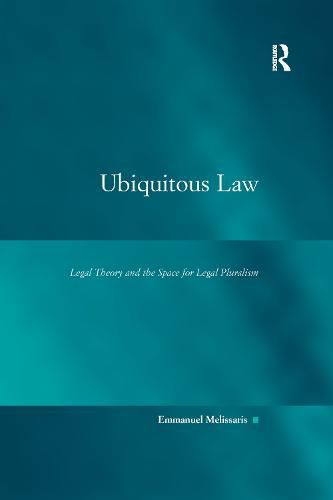Readings Newsletter
Become a Readings Member to make your shopping experience even easier.
Sign in or sign up for free!
You’re not far away from qualifying for FREE standard shipping within Australia
You’ve qualified for FREE standard shipping within Australia
The cart is loading…






Ubiquitous Law explores the possibility of understanding the law in dissociation from the State while, at the same time, establishing the conditions of meaningful communication between various legalities. This book argues that the enquiry into the legal has been biased by the implicit or explicit presupposition of the State’s exclusivity to a claim to legality as well as the tendency to make the enquiry into the law the task of experts, who purport to be able to represent the legal community’s commitments in an authoritative manner. Very worryingly, the experts’ point of view then becomes constitutive of the law and parasitic to and distortive of people’s commitments. Ubiquitous Law counter-suggests a new methodology for legal theory, which will not be based on rigid epistemological and normative assumptions but rather on self-reflection and mutual understanding and critique, so as to establish acceptable differences on the basis of a commonality.
$9.00 standard shipping within Australia
FREE standard shipping within Australia for orders over $100.00
Express & International shipping calculated at checkout
Ubiquitous Law explores the possibility of understanding the law in dissociation from the State while, at the same time, establishing the conditions of meaningful communication between various legalities. This book argues that the enquiry into the legal has been biased by the implicit or explicit presupposition of the State’s exclusivity to a claim to legality as well as the tendency to make the enquiry into the law the task of experts, who purport to be able to represent the legal community’s commitments in an authoritative manner. Very worryingly, the experts’ point of view then becomes constitutive of the law and parasitic to and distortive of people’s commitments. Ubiquitous Law counter-suggests a new methodology for legal theory, which will not be based on rigid epistemological and normative assumptions but rather on self-reflection and mutual understanding and critique, so as to establish acceptable differences on the basis of a commonality.